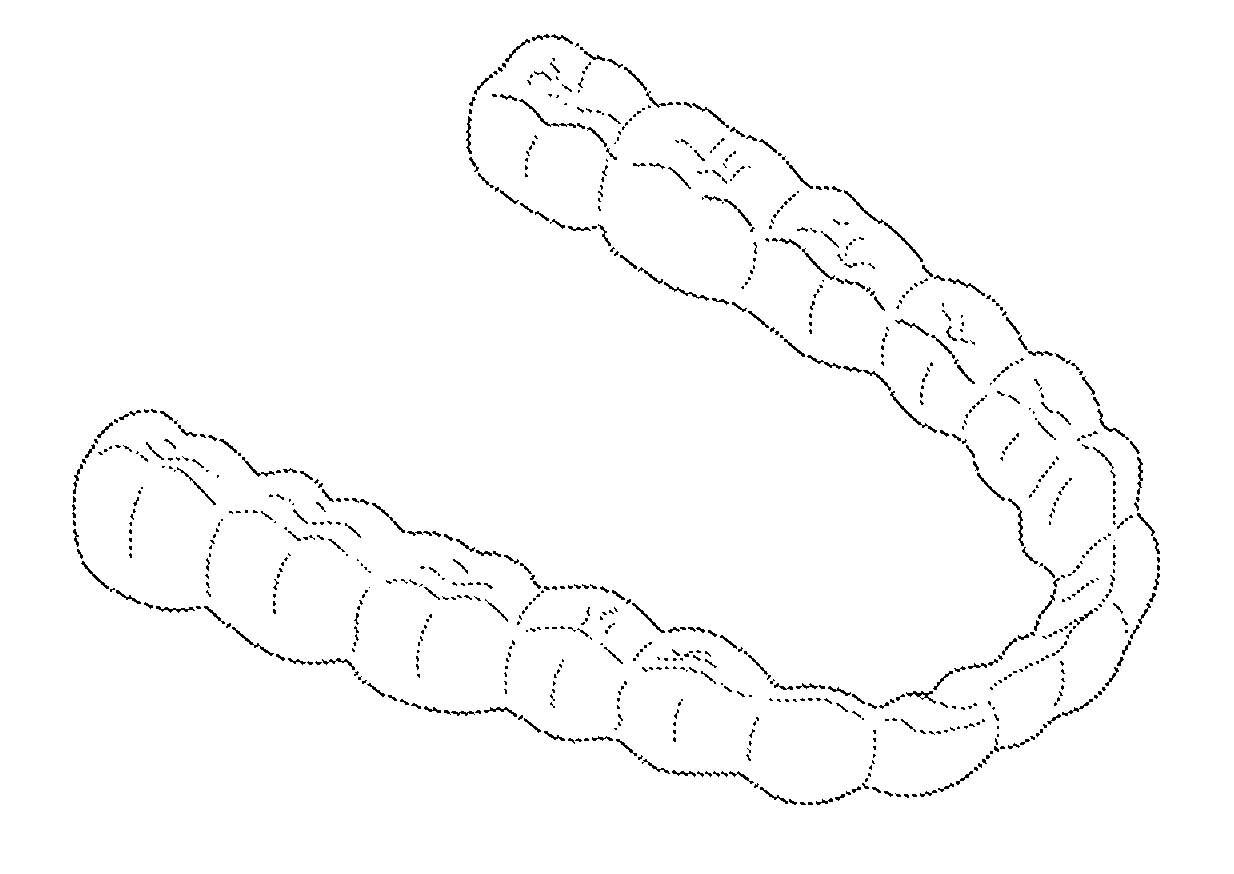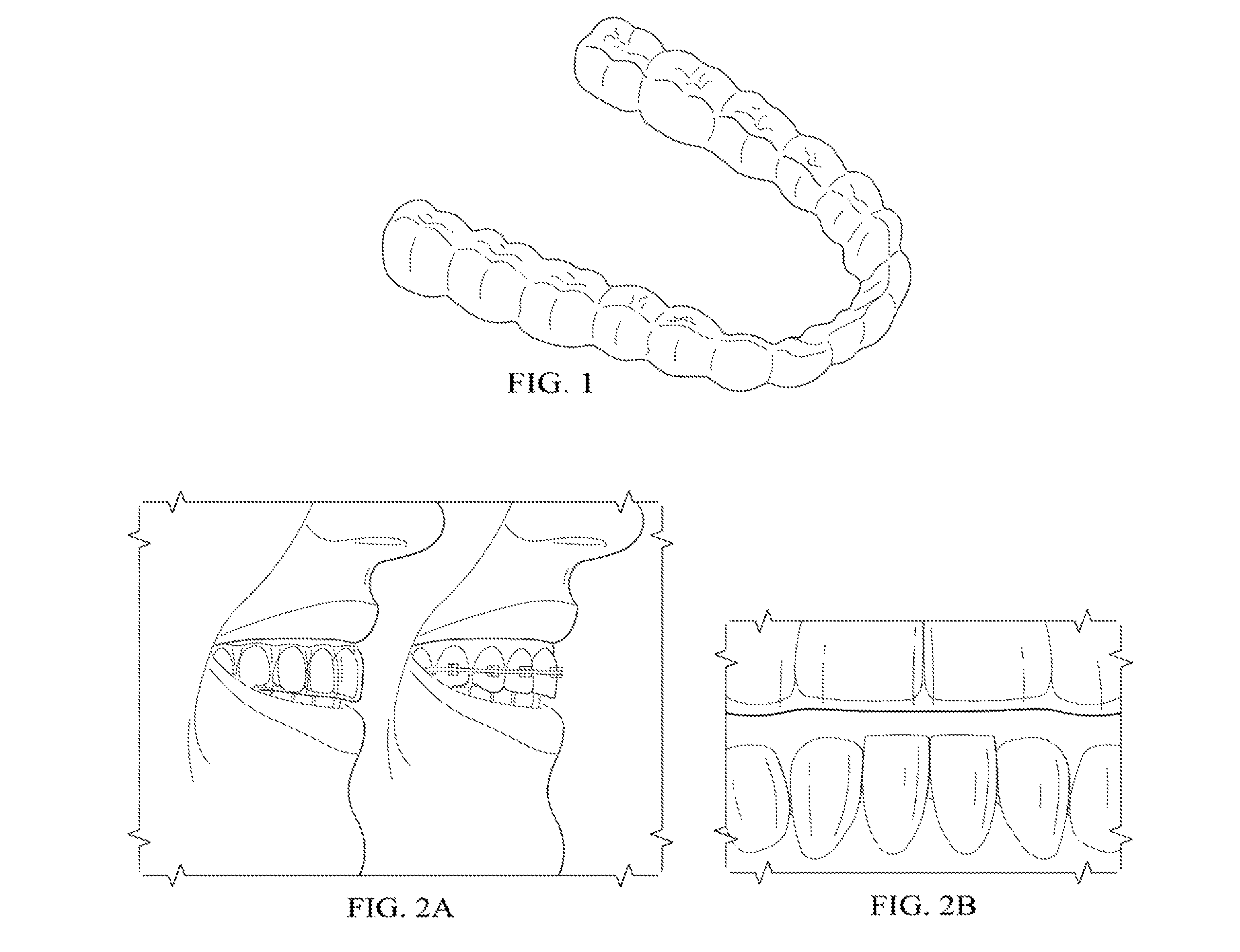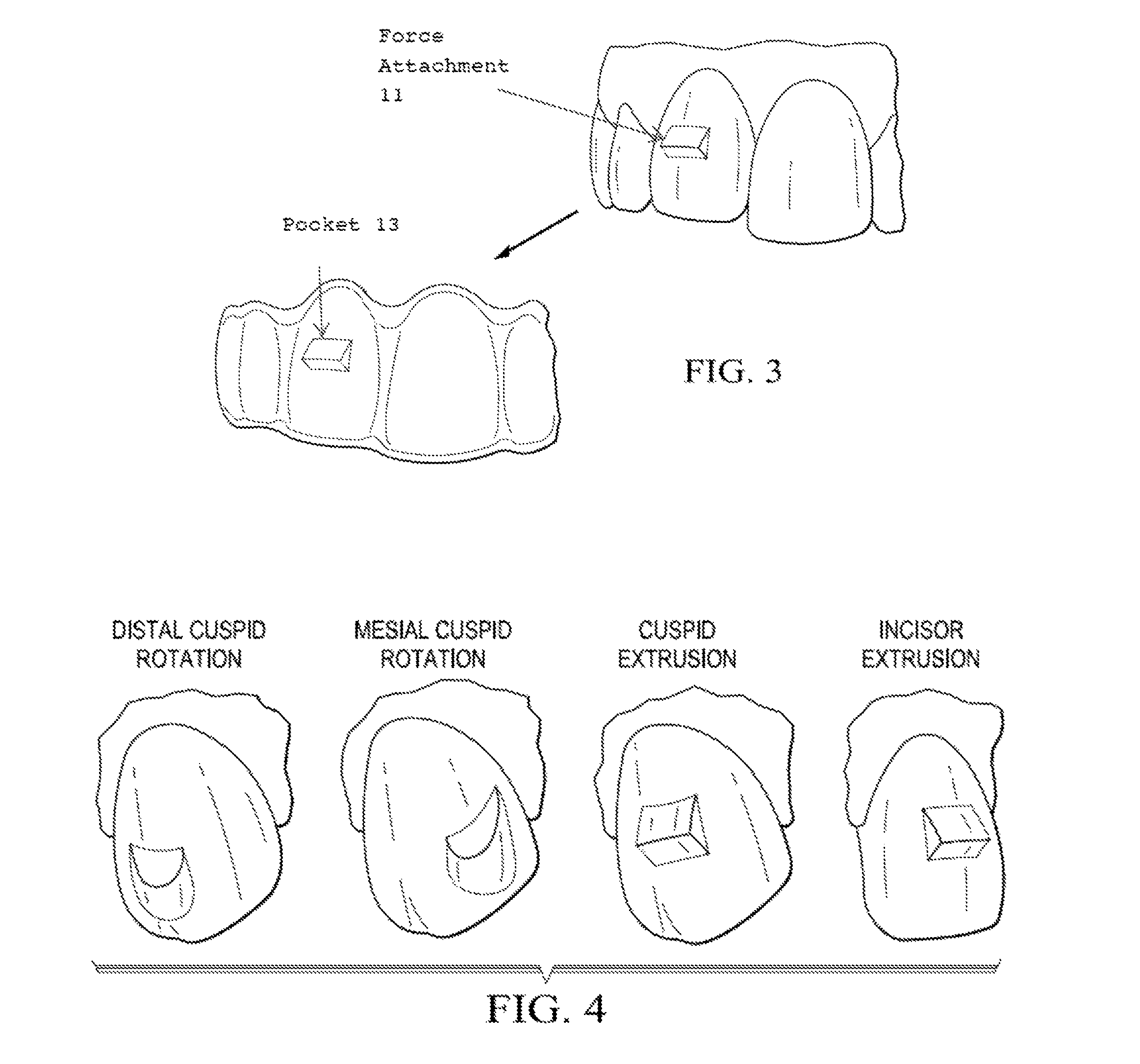Pearlescent white aligners
a white aligner and pearlescent technology, applied in the field of pearlescent white aligners, can solve the problems of root resorption, inability to shorten the treatment time, complicated treatment of braces, etc., and achieve the effect of improving aesthetics
- Summary
- Abstract
- Description
- Claims
- Application Information
AI Technical Summary
Benefits of technology
Problems solved by technology
Method used
Image
Examples
Embodiment Construction
[0075]The invention is a pearlescent white aligner. Such aligners can hide force attachments and avoid the appearance of a thin clear lines under the occlusal edges of teeth and in front of the facial surfaces. The aligners thus have potentially even better aesthetics than a patients own teeth, which may be discolored or unevenly colored. Greatly improved aesthetics will aid practitioners in capturing that portion of the market that is still very resistant to orthodontic treatment, and will allow many adult and teen patients the comfort of improved aesthetics during a lengthy treatment period.
[0076]Preferably, the index of refraction of a pearlescent white aligner will be at least 0.03 greater than that of the transparent resin alone, and can be 0.04 greater, but too much shine does not look natural. Overall, the aligner should have an index of refraction of at least about 1.5-1.6 or slightly higher. Aligners can also be covered with a clear or translucent coating for better aesthet...
PUM
 Login to view more
Login to view more Abstract
Description
Claims
Application Information
 Login to view more
Login to view more - R&D Engineer
- R&D Manager
- IP Professional
- Industry Leading Data Capabilities
- Powerful AI technology
- Patent DNA Extraction
Browse by: Latest US Patents, China's latest patents, Technical Efficacy Thesaurus, Application Domain, Technology Topic.
© 2024 PatSnap. All rights reserved.Legal|Privacy policy|Modern Slavery Act Transparency Statement|Sitemap



